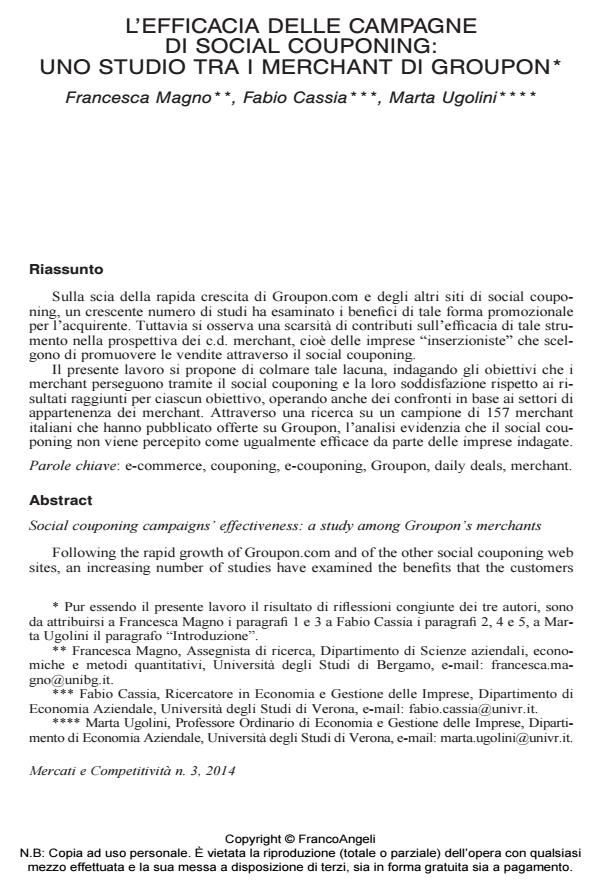Social couponing campaigns’ effectiveness: a study among Groupon’s merchants
Journal title MERCATI E COMPETITIVITÀ
Author/s Francesca Magno, Fabiio Cassia, Marta Ugolini
Publishing Year 2014 Issue 2014/3
Language Italian Pages 23 P. 41-63 File size 120 KB
DOI 10.3280/MC2014-003004
DOI is like a bar code for intellectual property: to have more infomation
click here
Below, you can see the article first page
If you want to buy this article in PDF format, you can do it, following the instructions to buy download credits

FrancoAngeli is member of Publishers International Linking Association, Inc (PILA), a not-for-profit association which run the CrossRef service enabling links to and from online scholarly content.
Following the rapid growth of Groupon.com and of the other social couponing web sites, an increasing number of studies have examined the benefits that the customers can derive from this promotional tool. Nonetheless we register a scarcity of studies about the effectiveness of social couponing from the merchants’ perspective, i.e. from the perspective of those companies publishing their offerings on these sites. The purpose of this study is to fill this gap, by investigating the objectives that the merchants intend to achieve through social couponing and their satisfaction with the performance of this tool. Comparisons among merchants belonging to different industries are made, as well. Through a survey on a sample of 157 Italian merchants that have run their coupon campaigns through Groupon, this study shows that social couponing is not perceived as equally effective by all companies.
Keywords: E-commerce, couponing, e-couponing, Groupon, daily deals, merchant.
- The perceived effectiveness of social couponing campaigns for hotels in Italy Fabio Cassia, Francesca Magno, Marta Ugolini, in International Journal of Contemporary Hospitality Management /2015 pp.1598
DOI: 10.1108/IJCHM-02-2014-0090
Francesca Magno, Fabiio Cassia, Marta Ugolini, L’efficacia delle campagne di social couponing: uno studio tra i merchant di Groupon in "MERCATI E COMPETITIVITÀ" 3/2014, pp 41-63, DOI: 10.3280/MC2014-003004